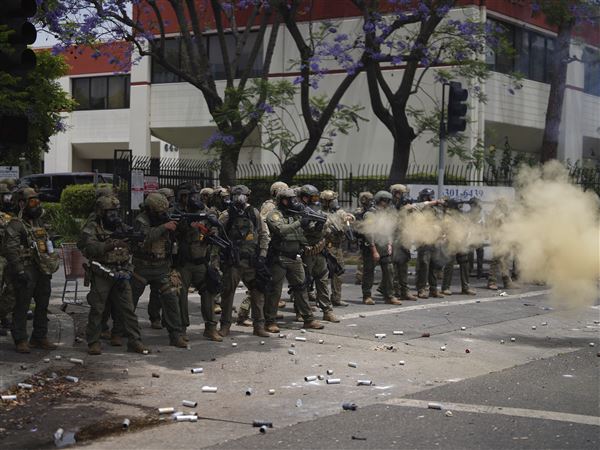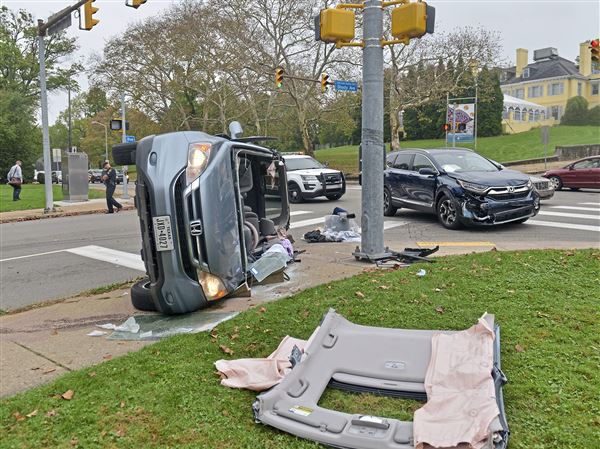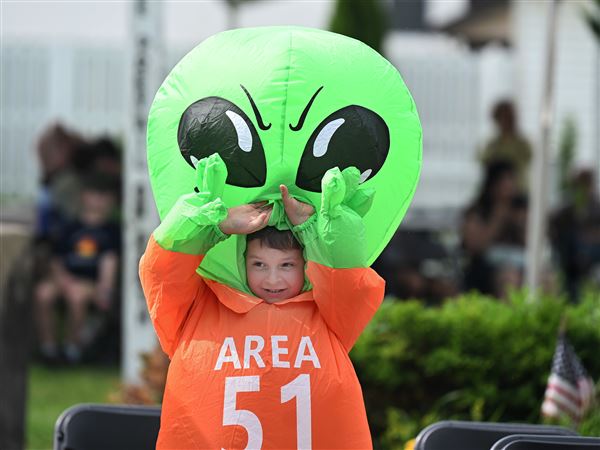WASHINGTON -- A federal district judge ruled Monday that the National Security Agency program that is systematically keeping records of all Americans' phone calls most likely violates the Constitution, describing its technology as "almost Orwellian" and suggesting that James Madison would be "aghast" to learn that the government was encroaching on liberty in such a way.
District of Columbia Judge Richard J. Leon ordered the government to stop collecting data on the personal calls of the two plaintiffs in the case and to destroy the records of their calling history. But the judge, appointed to the bench in 2002 by President George W. Bush, stayed his injunction "in light of the significant national security interests at stake in this case and the novelty of the constitutional issues," allowing the government time to appeal it -- a matter that he said could take at least six months.
The case is the first in which a federal judge who is not on the Foreign Intelligence Surveillance Court, which authorized the once-secret program, has examined the bulk data collection on behalf of someone who is not a criminal defendant.
The Justice Department has said 15 separate surveillance court judges have held on 35 occasions that the calling data program is legal. It also marks the first successful legal challenge brought against the program since it was revealed in June after leaks by former NSA contractor Edward J. Snowden.
"I cannot imagine a more 'indiscriminate' and 'arbitrary' invasion than this systematic and high-tech collection and retention of personal data on virtually every single citizen for purposes of querying and analyzing it without prior judicial approval," Judge Leon wrote in a 68-page ruling. "Surely, such a program infringes on 'that degree of privacy' that the founders enshrined in the Fourth Amendment," which prohibits unreasonable searches and seizures.
Justice Department spokesman Andrew Ames said government lawyers were studying the decision, but he added: "We believe the program is constitutional as previous judges have found."
In a statement from Moscow, where he has obtained temporary asylum, Mr. Snowden praised the ruling. "I acted on my belief that the NSA's mass surveillance programs would not withstand a constitutional challenge, and that the American public deserved a chance to see these issues determined by open courts," Mr. Snowden said in his statement. It was distributed by journalist Glenn Greenwald, who received leaked documents from Mr. Snowden and who wrote the first article about the bulk data collection.
"Today, a secret program authorized by a secret court was, when exposed to the light of day, found to violate Americans' rights," the Snowden statement said. "It is the first of many."
The case was brought by several plaintiffs led by conservative legal activist Larry Klayman . Mr. Klayman, who represented himself and the other plaintiffs, said in an interview Monday that he was seeking to turn the case into a class action on behalf of all Americans. "I'm extremely gratified that Judge Leon had the courage to make this ruling," he said. "He is an American hero."
Judge Leon said Mr. Klayman and his co-plaintiff had legal standing because it was highly likely, based on the government's own program description as a "comprehensive metadata database," that the NSA collected data about their phone calls along with everyone else's.
Similar legal challenges to the NSA program, including by the American Civil Liberties Union and the advocacy group Electronic Frontier Foundation, are at earlier stages in the courts. Last month, the Supreme Court declined to hear an unusual challenge to the program by the Electronic Privacy Information Center, which had sought to bypass lower courts.
The ruling Monday comes as several government panels are developing recommendations on whether to keep, restructure or scrap the bulk data collection program, and as Congress debates competing bills over the program's future.
Judge Leon's ruling is not a final judgment on the program, but rather a preliminary injunction to stop collection of data about the plaintiffs while they pursue their case. He also wrote that he had "serious doubts about the efficacy" of the program, saying the government had failed to cite "a single instance in which analysis of the NSA's bulk metadata collection actually stopped an imminent attack, or otherwise aided the government in achieving any objective that was time-sensitive."
Judge Leon rejected the Obama administration's argument that a 1979 case, Smith v. Maryland, had established there are no Fourth Amendment protections for call metadata -- information such as numbers dialed and the date, time and duration of calls, but not their content. Citing the program's scope and the evolving role of phones and technology, he distinguished the bulk collection from the 34-year-old case.
















